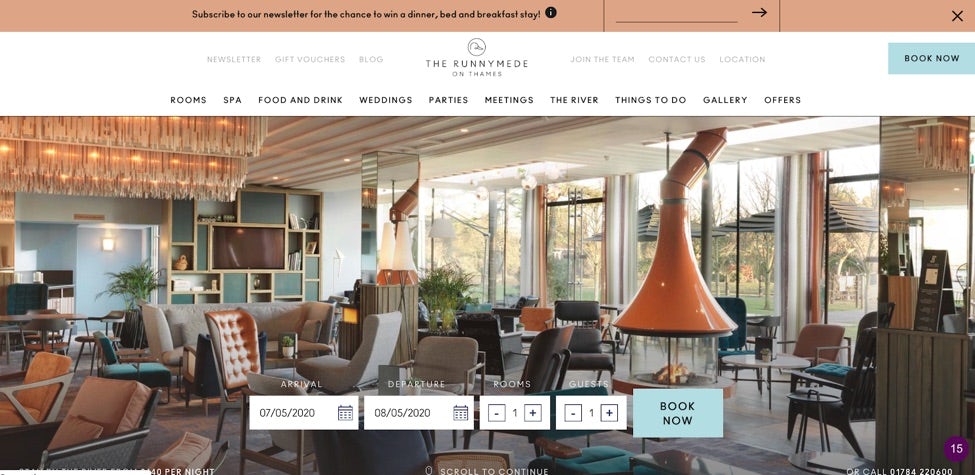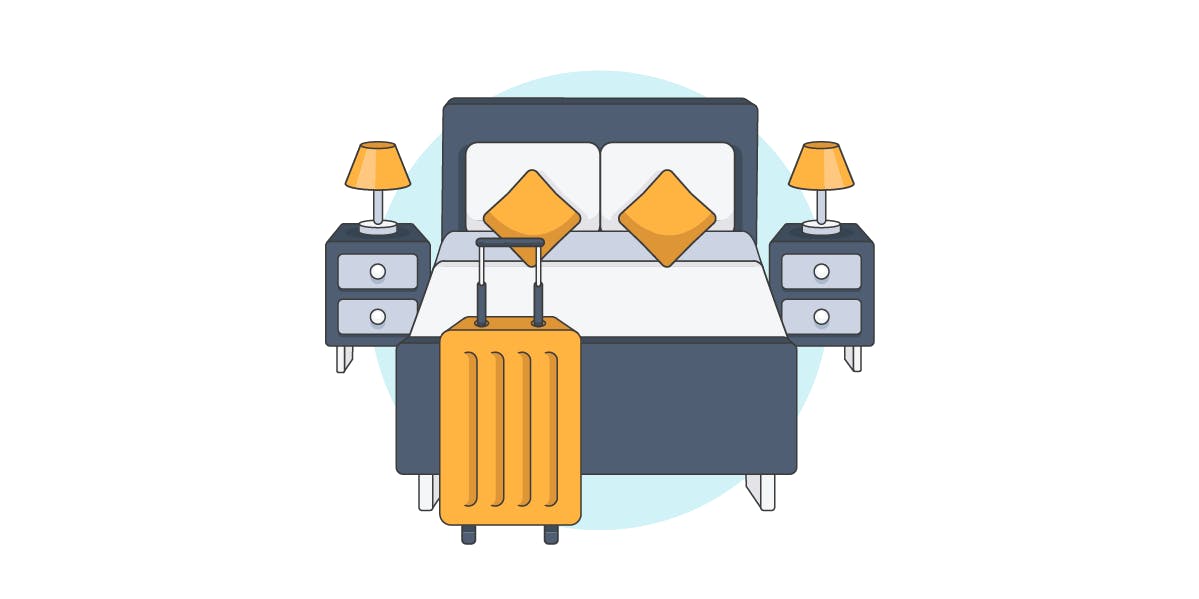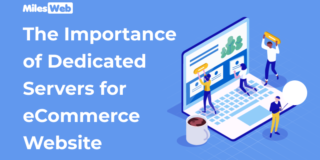Should your hotel maintain, slow or pause paid advertising activity? What other opportunities are there during the Covid-19 crisis?
It’s no secret that the global hospitality industry has been hit hard during the coronavirus, not just impacted by the lack of travel but the subsequent effect that lockdown has had on hotel bookings and revenue. This has led to hotels left with little option but to take steps such as furloughing staff and developing alternative ‘out the box’ ideas to generate revenue during this difficult time.
Many of us may be aware of the well-publicised steps hotels have taken to react to the current situation. Some of these steps include:
- Covid-19 messaging, callouts & popups on their websites, informing of sanitary measures and subsequent closures
- Some hotels, mostly apart-hotels, remain open for day-use. One premium end apart-hotel in Switzerland has even launched a Covid-19 Service Package
- Introducing or enhancing visibility of gift vouchers, particularly those hotels with spas or ‘package’ offers. Others are offering ‘breaks’ or afternoon tea experiences with increased flexibility around when they can be redeemed
- Takeout service utilising Uber Eats or similar services – to maintain some degree of operation within the food and beverage side of the hotel
- Flexibility around advanced bookings, and waiving fees on booking cancellation policies
- Looking to convert cancelled bookings
Aside from the above, with footfall and hotel bookings almost grinding to a halt, a number of hotels have decided to take additional measures.
Should my hotel maintain, slowdown or pause paid advertising activity?
At UP Hotel Agency we have offered our full guidance and support to our hotel clients looking to question what approach they should be taking with their paid advertising (PPC and meta search) campaigns during Covid-19.
For some hotels, particularly smaller boutique hotels with little to no brand equity and tighter cash flows who largely remain reliant on online travel agents (OTAs) for initial visibility, the decision has almost been taken away from them; left with little option other than to pause PPC campaigns due to cashflow.
With OTAs such as Booking.com and Hotels.com dramatically slowing down their advertising and bidding on hotel brands during Covid-19, this has left an opening for medium to large size hotels to not just retain visibility, but maximise it, commanding greater real estate at the top of Google for relevant searches pertaining to their services. A number of our clients have chosen to take advantage of this despite the massive impact the current situation has also had on them.
Why have some hotels decided to retain paid advertising campaigns?
Booking intent may of course be low due to current domestic and international travel restrictions, however with little visibility of OTAs currently, this presents hotels with a strong opportunity to advertise at a lower cost, due to the bidding auction being less competitive. Some of these opportunities are:
- Developing direct brand awareness and visibility of the key ‘book direct’ benefits
- Test the bottom of the brand protection with ‘maximise clicks’ bidding strategies leading to exceptionally low cost per clicks and an excellent corresponding cost per conversion
- Add remarketing tags to their websites to re-capture audiences back to engage
- Trial a handful of non-brand terms at a lower cost per click
- Generate direct website engagement and newsletter signups
- Tailoring paid advertising messaging to ‘Save the Summer’, ‘Book Now Travel Later’, and to emphasise the hotels scope for flexibility with any future bookings made
Hotels with a strong focus around securing wedding bookings for 2021 have really revelled in securing top advertising space at a lower cost, generating queries at a lower cost per acquisition.
For the reasons above, up to 80% of our clients at UP have decided to retain visibility through Google Ads and meta search for the time being; with the other 20% pausing activity for the time being until the lockdown is lifted, which we have also fully supported these clients with.
For those clients retaining their advertising activities, the following approaches have been taken:
- Monthly budgets (spend) has been lowered/capped
- Ad schedules have been adjusted to appear only during best performing times
What many aren’t perhaps aware of, is that the avg. cost per click for advertising through Google Ads has dropped significantly (especially during April), as bidding auctions have become smaller and the space less competitive.

Avg. CPC – picture for one client during April, with similar figures across other client accounts
Google is also applying ad credits to SMB accounts, which may support smaller to mid-size hotels with their advertising efforts. To be a candidate for this credit, your business needs to have had an active Google Ads account since Jan 1st 2019. Additional information is available here.
At UP, our advice for hotels especially during this time is to pay close attention to online travel agents (OTAs) and when they start to increase their rate of paid advertising and bidding on your hotel brand, and to maintain a certain degree of activity yourself through PPC. This should sit in line with a comfortable level of spend for your hotel. Exploring meta search for your hotel may also be something for consideration moving forward.
Paid platforms such as Google Ads (PPC) have developed complex algorithms over time, which calculate your data vs competitors to determine where you appear in Google. If your campaign is paused for a considerable period, your data will stagnate and needs to be reestablished which may take some time after campaign reactivation. This becomes more of an issue if competitors are launching their campaigns before you notice, and you reactivate your own Hotel’s PPC campaigns at a later date, thus missing out on opportunities to secure bookings.
What other approaches can hotels take during Covid-19?
SEO and your hotel’s organic visibility is also very important to explore, as your hotel strives to appear for competitive searches. Is your hotel based in London, perhaps reliant on footfall for shows, events or shopping experiences? How are you currently addressing awareness of this across your website?
Before marketing approaches such as PPC and SEO are considered for your hotel, the hotel website is the key tool that works to unlock the conversions.
Take advantage of the slowdown by auditing your hotel website
With a downturn in activity at your hotel, now may be a good time to take a step back and to evaluate the performance of your hotel’s website, as well as the level of distribution of rooms (direct vs OTAs), revenue generated vs commission paid out to OTAs over the past year or more.
One thing is for sure, when lockdown is over; hotels will need to maximise ‘direct’ bookings and revenue takings to maximise performance and overcome the impact of Covid-19 in a speedier fashion. The last thing any hotel wants is to have to pay out approx. 20% commission to OTAs for the bulk of bookings taken. Sure, a percentage is required, but how hard is your hotel website currently working to generate these ‘direct bookings’ and attaining full room rate revenue?
Perhaps it’s time to look at some of the following factors.
Does your hotel website design impress?
Is your hotel website design looking crisp and sharp, with visual elements structured properly? Is your hotel’s website ‘on brand’ and how does it measure up against your competitors in the area? Is there a seamless transition between your website and booking engine in terms of design and the way this looks, or does it potentially ‘throw’ you off course, or even redirect you away from the hotel website?

Example of a nicely designed hotel website (The Runnymede Hotel), with clear messaging, signposting and clear calls to action. Image: runnymedehotel.com
User (guest) experience on your hotel website
Position yourself as a consumer looking to book as a guest at your hotel. As is typical when looking to book a hotel, you have multiple browser windows open on your computer or mobile device, showing your hotel website vs OTA websites. You conduct this exercise to compare room rates, and discover that there is parity between the rate advertised by your hotel vs the OTA site? What now distinguishes your hotel website from the OTAs, and why as a guest, would you choose to book direct? Is your hotel acting as it should, the perfect concierge?
- Is the hotel website emphasising the book direct proposition, and do you offer a unique selling proposition (USP) vs a guest booking your rooms through an OTA?
- Is the hotel website tracking visitors to the website, and remarketing to them, as OTAs are through display advertising and email campaigns reminding them not to miss out, to book now?
- Is the hotel website well signposted and directing visitors to key areas e.g. rooms, weddings and the booking engine?
- Are there clear calls to action for softer conversion points such as having the telephone number and email address clearly visible for contact to be made?
- Are form completions of optimal length?
- Are there callouts or exit captures to reduce exit rates from the website?
- Are you going above and beyond to communicate with guests, through live chat (or chat bots) – to create the impression of maximising the ‘guest experience’?
Hotel websites are often tainted by a historic reputation for being gallery or brochure sites, for users to typically view the hotel premises in more depth before booking through an OTA site, where perhaps they initially discovered your hotel. Three to five minutes is the longest a customer would spend on a hotel website before giving up and going elsewhere, so your website really has to work hard to convert!
Guests book their stays through OTAs for a number of reasons, such as the ease and simplicity of the booking process, trust in the OTA brand, ability to login securely and the speed of checkout process.
To increase direct bookings moving forward, your hotel therefore has to really perfect the user experience across the site (and booking engine), and almost mimic some of the tactical approaches you have already seen executed by the likes of Booking.com.
Why consider reviewing your hotel website performance now?
Hotels and their management teams are already starting to plan post-Covid-19 approaches and marketing strategies to look to overcome the current crisis. The hotel website, and the need for ‘direct bookings’ to be generated through it should form a critical part of this agenda.
Balancing user experience with a strong design is a fine art, but, if executed effectively, this will really benefit your hotel’s post Covid-19 performance in terms of organic and paid search performance, and supporting your hotel’s overall recovery.




